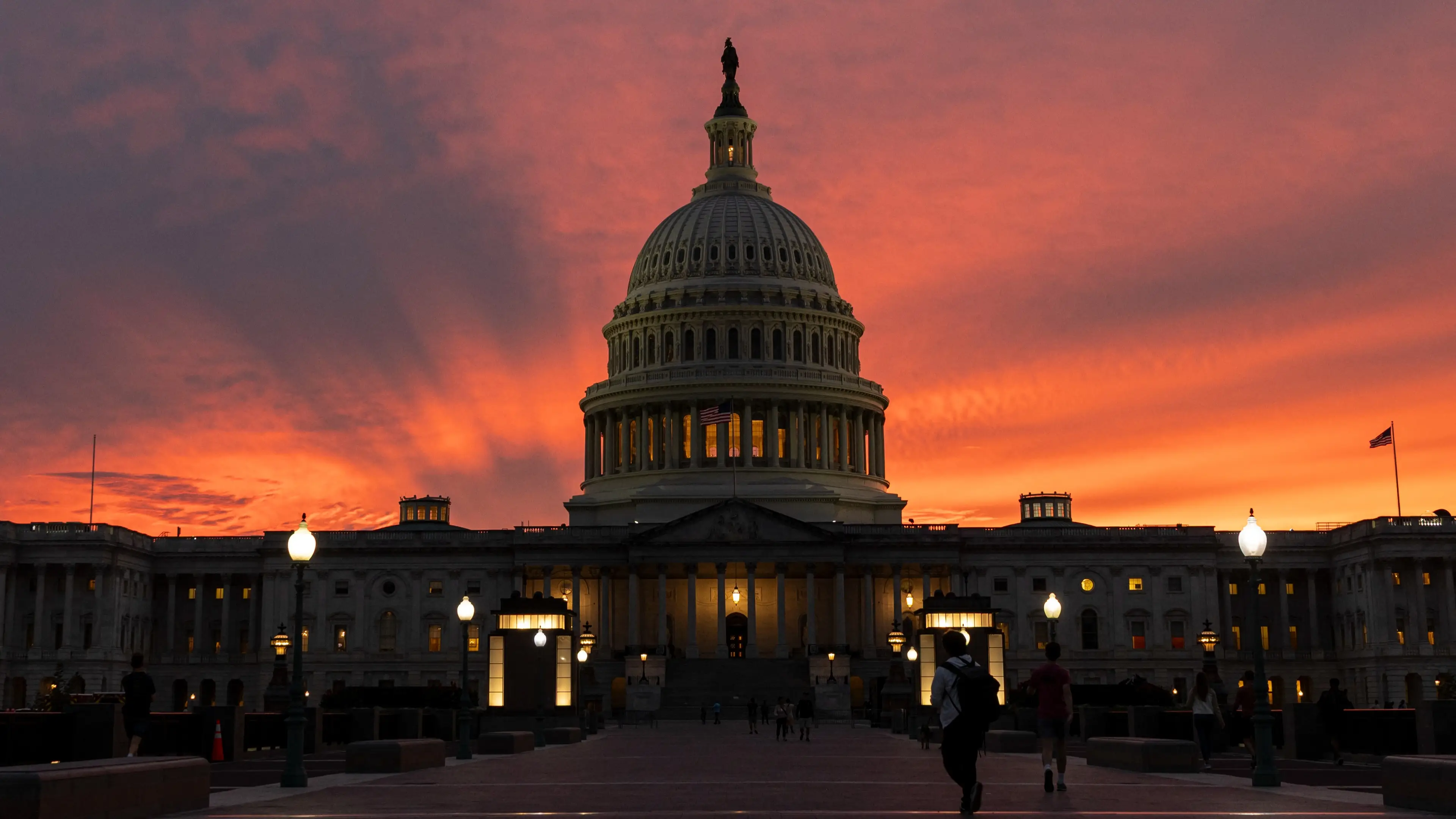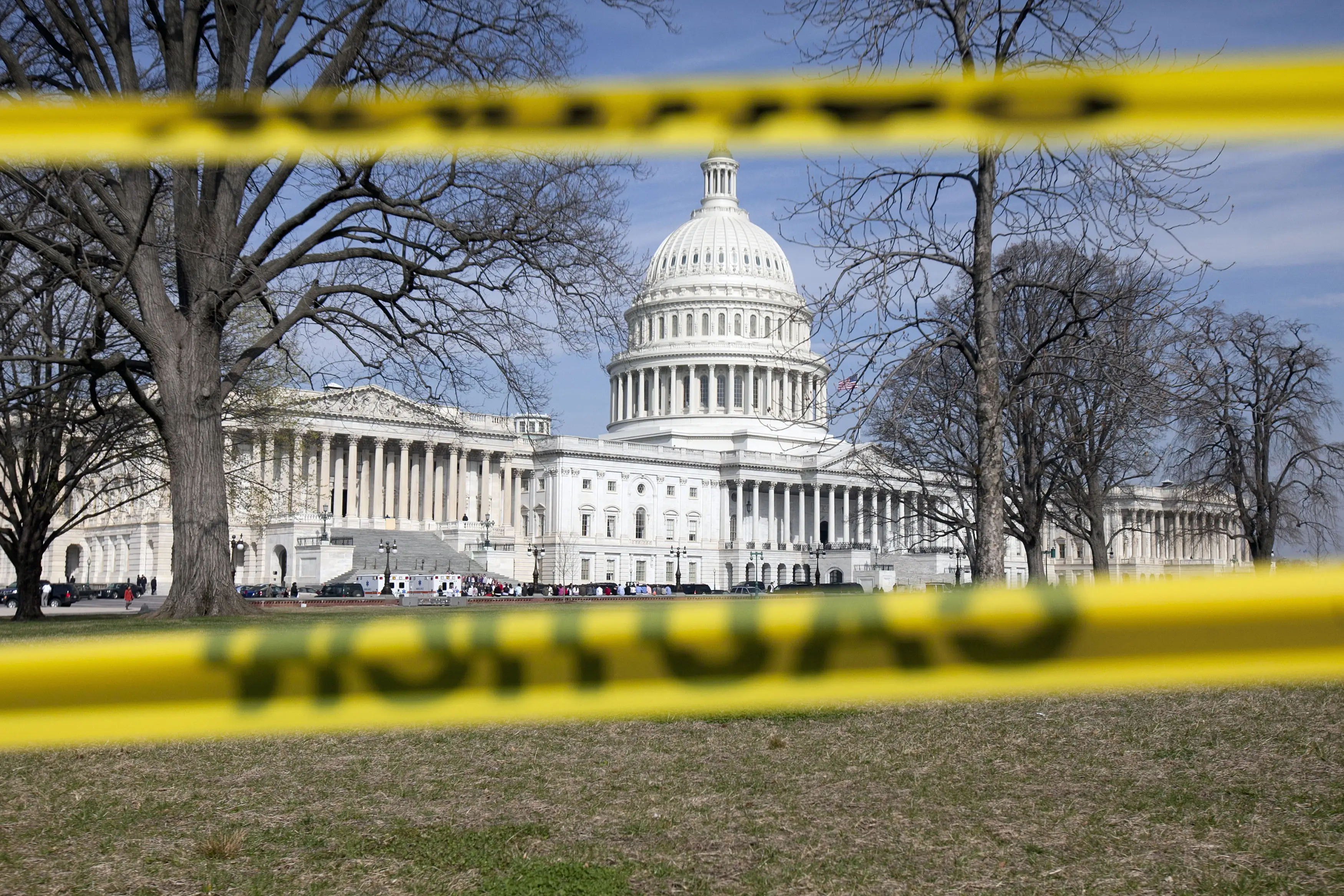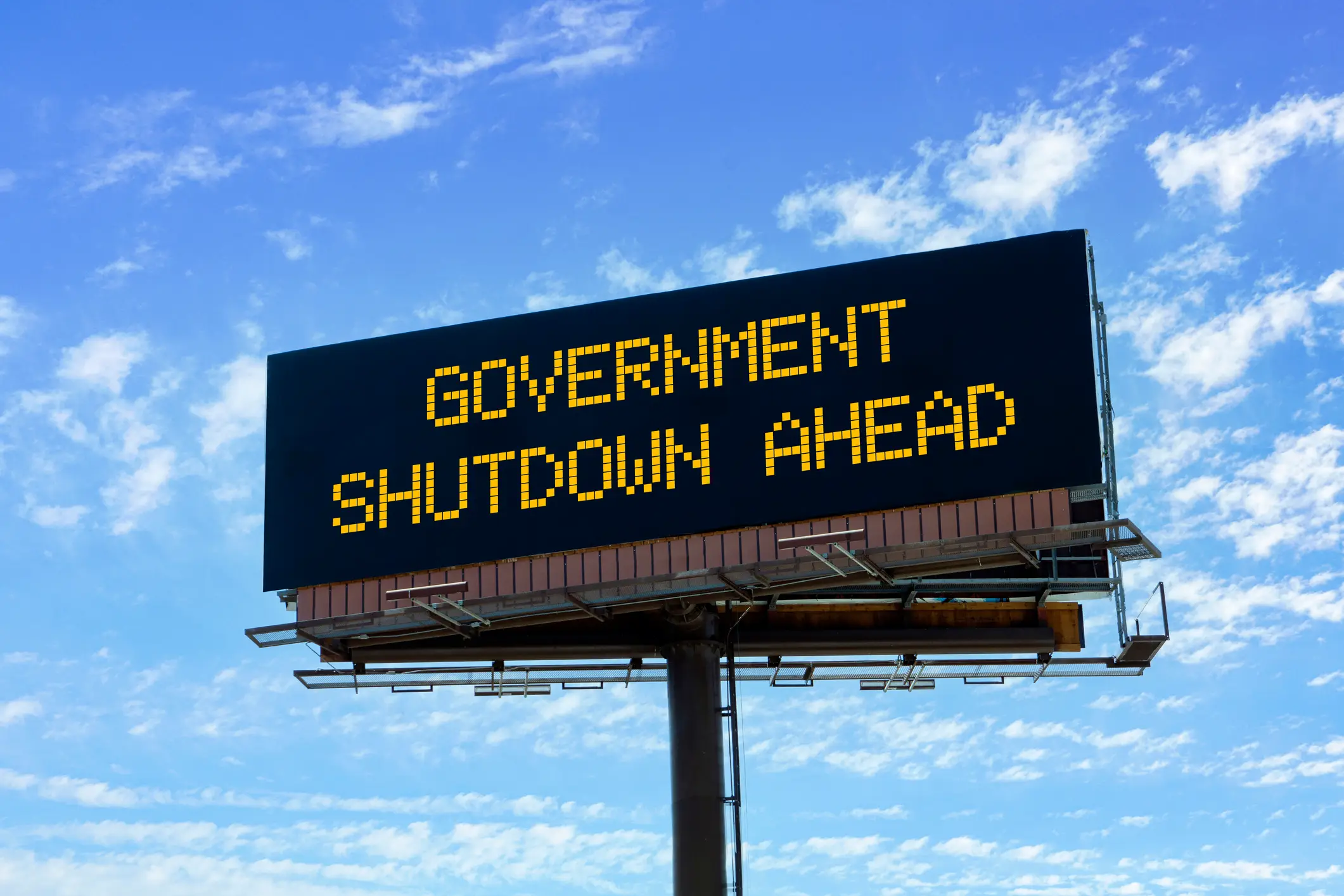
Topics: Donald Trump, Politics, News, US News

Topics: Donald Trump, Politics, News, US News
The American government has officially shut down after US president Donald Trump and Congress failed to reach a funding deal by today's (1 October) deadline.
It's the first shutdown since 22 December, 2018, which went on for 35 days all the way until 25 January, making it the longest government shutdown in more than 40 years.
The decision cost the US roughly $3 billion in lost GDP last time, according to the Congressional Budget Office and CNN.
And now, almost seven years later, it's happening again. Now, we know this all sounds very end-of-the-world and dramatic, but what does it actually mean?
Advert
A memo released by the White House yesterday (30 September) told agencies that would be affected to 'execute their plans for an orderly shutdown' and explained that how long it's going to last is hard to predict.
Here's everything you need to know about the US government shutdown - including how it may affect you.

A government shutdown means that all non-essential functions of government are frozen, affecting everything from national parks to air travel and healthcare.
Essentially, these federal agencies depend on their funding being approved by Congress to then allow for the president to sign budget legislation for the financial year ahead.
However, if they can't approve funding because of political differences and being unable to agree, then the money is stopped and those agencies are forced to temporarily shut down.
When they shut down, workers can't go to work and are either not paid, as per Sky News, or are put on furlough.
Federal workers and agencies that are deemed essential will continue, including the FBI, CIA, border protection, in-hospital medical care, law enforcement and air-traffic control.
However, those deemed not essential, such as food assistance programmes, federally-funded pre-schools, student loans, passport approvals, operations at national parks, and more are expected to come to a halt.

The BBC reports that Republicans were pushing to specific pass a bill to extend government funding without any other initiative's attached (known as a clean CR) which they needed 60 votes to pass.
However, they only have 53 seats in the Senate, meaning they really needed Democrat support to pass the bill.
Democrats knew this and so decided to use that leverage to their advantage to attempt to get some of their own policies passed.
They want to ensure subsidies for health insurance for low-income individuals do not expire and reverse the Trump administration's cuts to Medicaid which were part of his 'Big Beautiful Bill'.
With neither party backing down, it's resulted in a standoff, and subsequently, a shutdown.
“We don’t want it to shut down,” Trump said at the White House before the midnight deadline.
But the president, who met privately with congressional leadership this week, appeared unable to negotiate any deal between Democrats and Republicans to prevent that outcome.

Around 750,000 federal workers are expected to be furloughed, some potentially fired by the Trump administration.
Many offices will be closed, potentially even permanently, as Trump has vowed to 'do things that are irreversible, that are bad' as retribution, blaming Democrats for the shutdown.
The shutdown is expected to cause widespread disruption across America and the BBC reports that a whopping 40 percent of the federal workforce will be put on unpaid leave until the two parties can come to an agreement.
Some workers may be forced take second jobs, as they have during previous shutdowns due to the lack of pay.
And as for the general public, things like museums, monuments and national parks are expected to close.
Travel could also be delayed in numerous ways and government websites that provide information will not be updated.
Your flights may be affected, as while air-traffic control workers and TSA agents are actually considered essential, they will not be paid, and so as they have done in the past, may not show up for their shifts.
According to USA Today, the Health and Human Services Department said it will not be able to process public information requests.
Meanwhile, the National Institutes of Health will not be admitting new patients in clinical research trials.